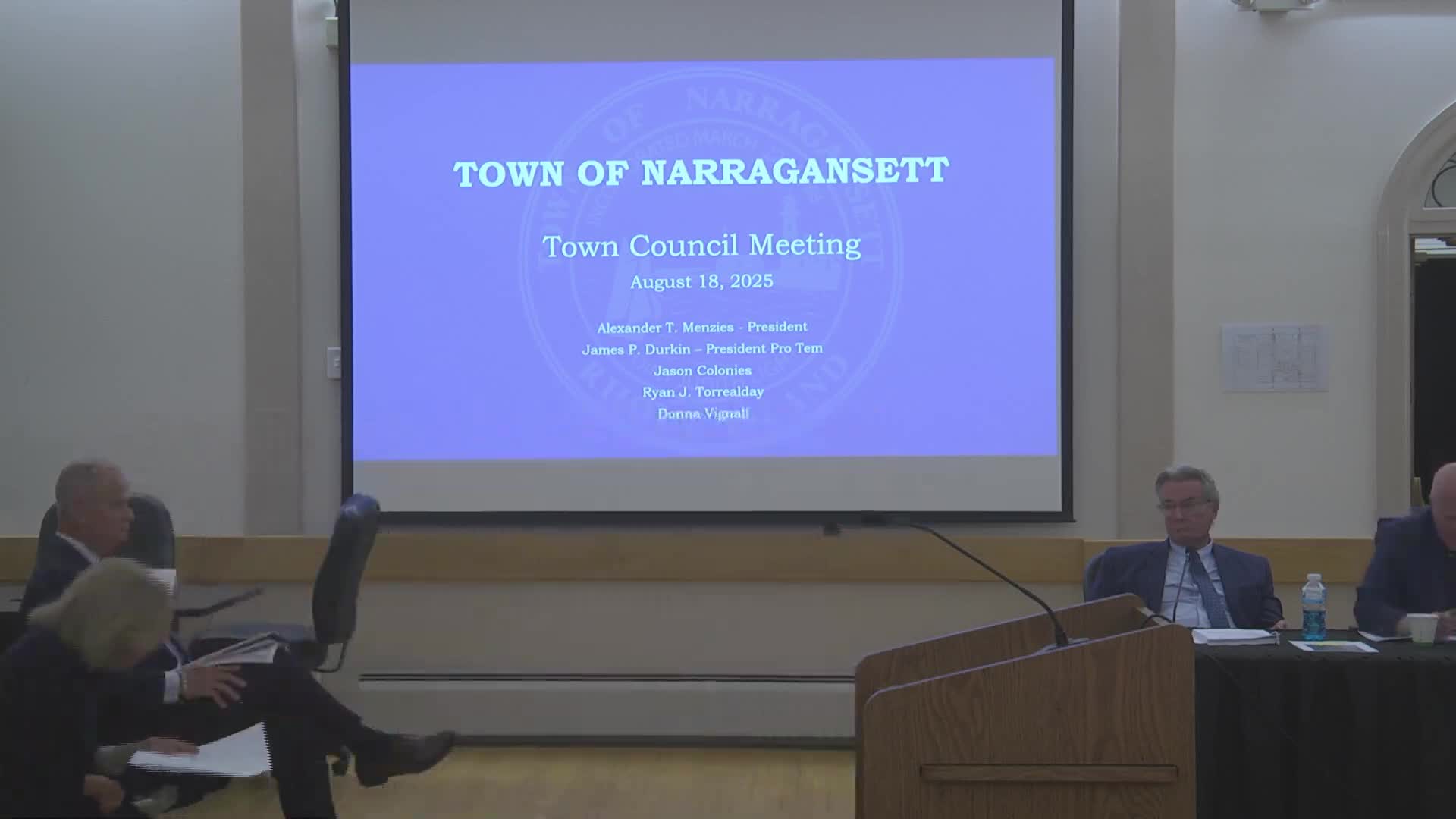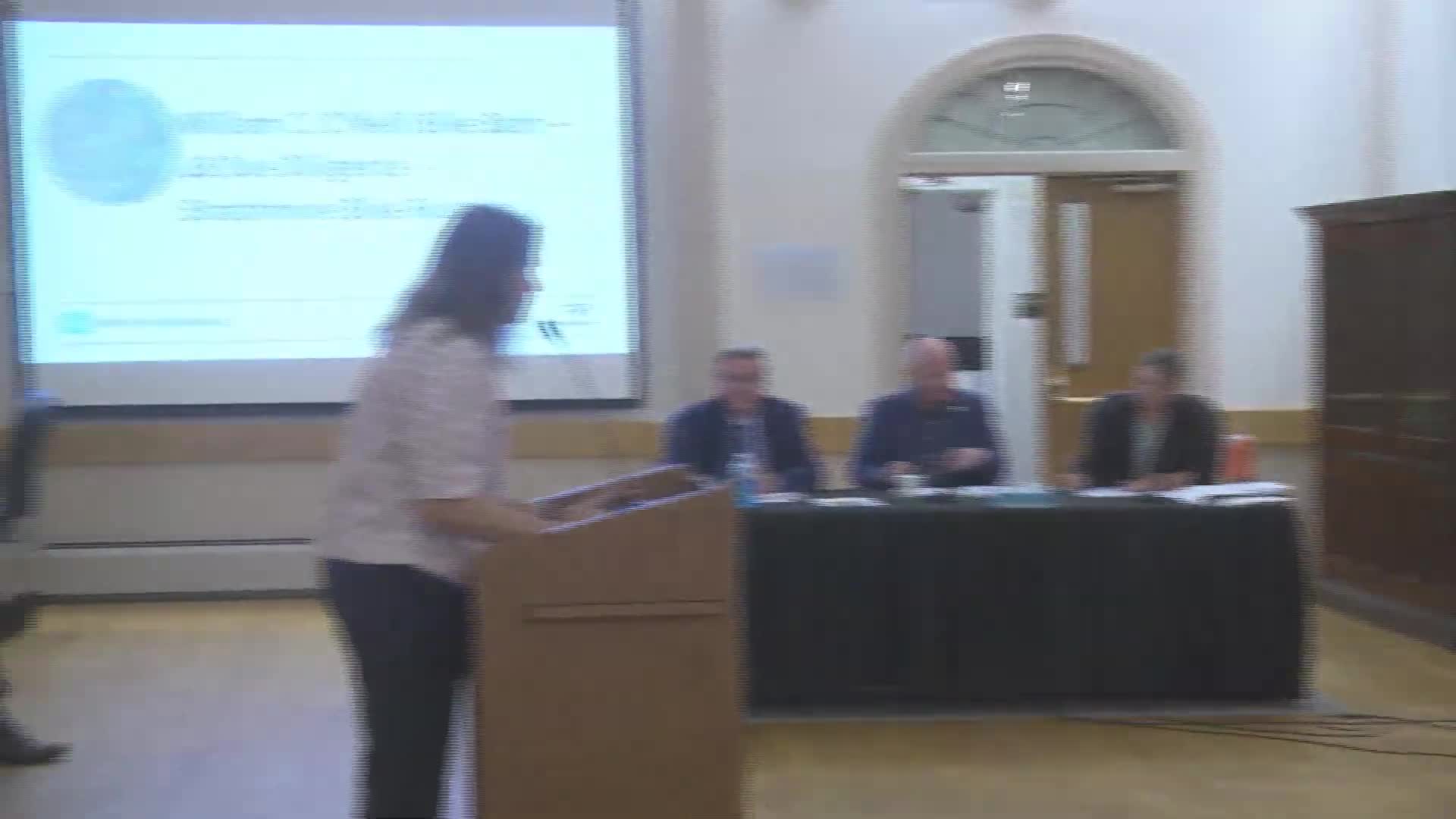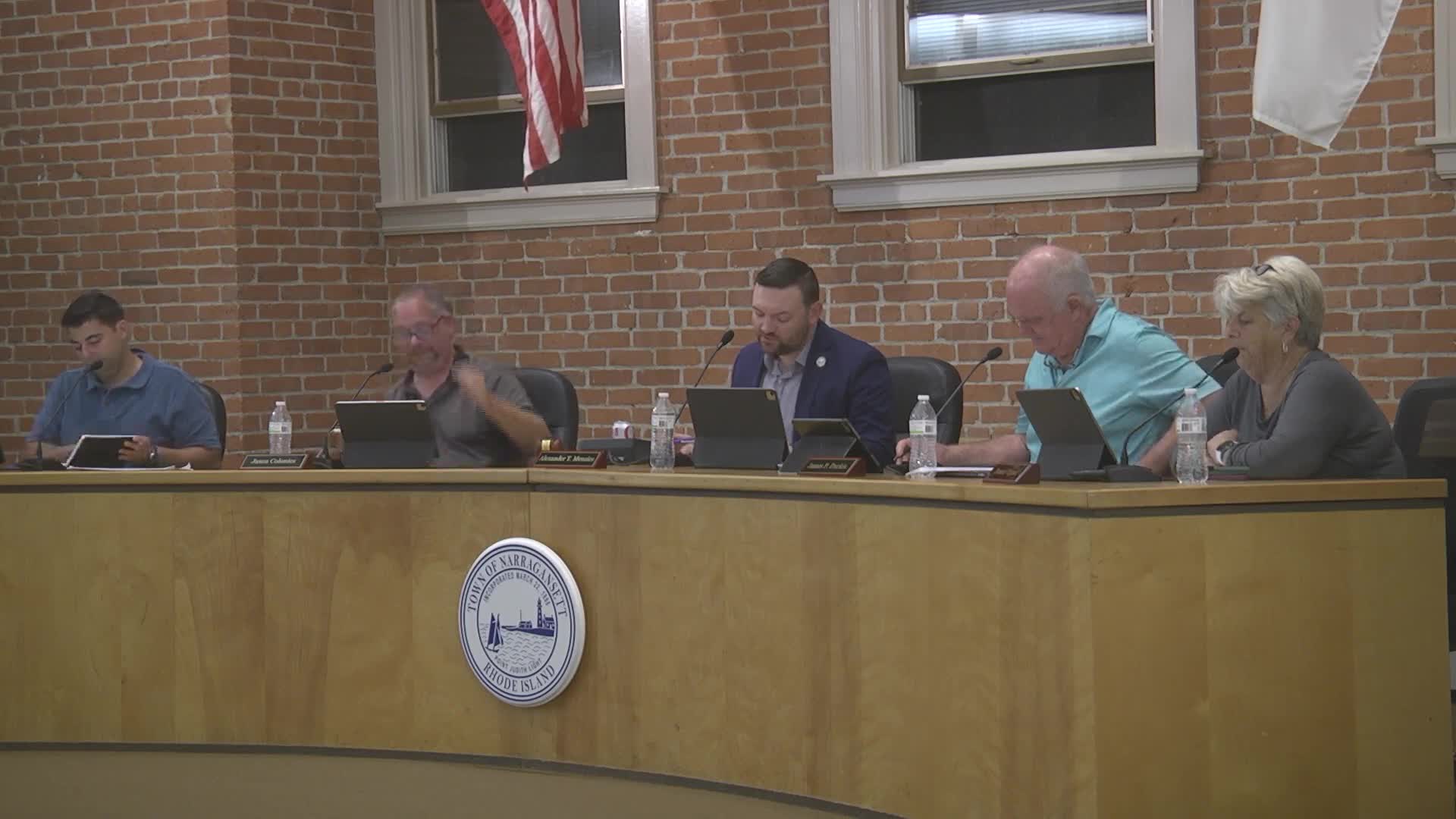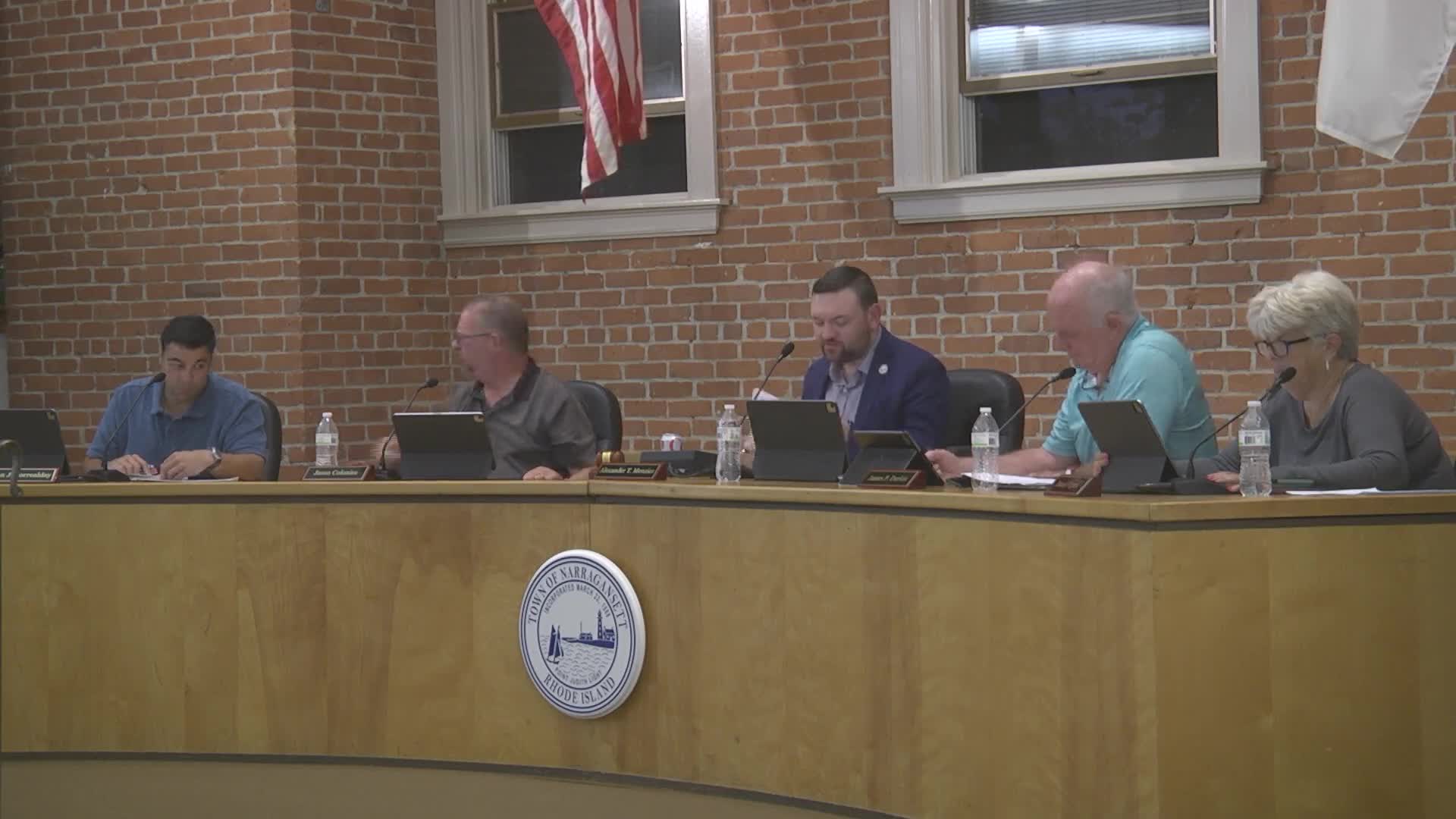Article not found
This article is no longer available. But don't worry—we've gathered other articles that discuss the same topic.

Council schedules workshop on student‑occupancy ordinance after public concerns

Narragansett council hears updated plans and schedules public workshop for bike path section 4b

Council holds closed session on opioid litigation and votes to seal minutes

